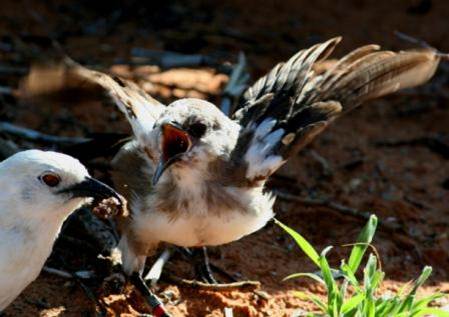First one: Brault et al (2012) Detecting Deception in Movement: The Case of the Side-Step in Rugby Plos ONE
As a rugby player I just really liked the idea behind this paper, and found it amazing that so much money could be spent on research into side-stepping.
http://www.plosone.org/article/info%3Adoi%2F10.1371%2Fjournal.pone.0037494
Second one: Hocking et al (2012) Leopard seals (Hydrurga leptonyx) use suction and filter feeding when hunting small prey underwater Polar Biology
This was cool because it just shows that even apex predators need to be flexible in their foraging habits, and the amazing way in which animals can adapt to different food sources.
I have put the link to the summary on the Nature website.
http://www.nature.com/news/leopard-seals-suck-up-krill-like-whales-1.11672?WT.ec_id=NEWS-20121030
Final one: Węgrzyn (2012) Intensity of mouth coloration in Blackcap Sylvia atricapilla nestlings affects food distribution among siblings but not provisioning of the whole brood Ibis
I liked this paper because it goes against many preconceptions about gape colour in nestling signalling. Normally, it is assumed that a more vibrant gape colour will increase provisioning to a nestling but the opposite occurs in this case. I love papers that go against norms and expectations.
http://onlinelibrary.wiley.com/doi/10.1111/ibi.12004/full



 RSS Feed
RSS Feed
